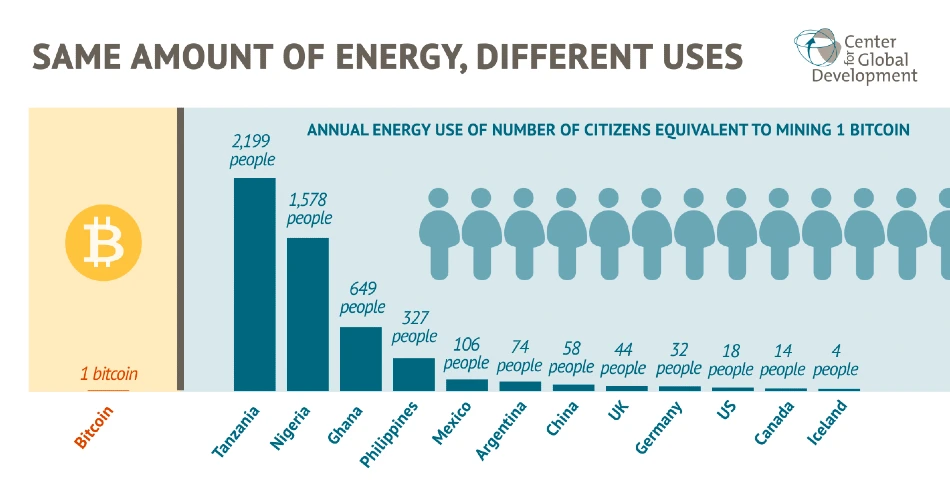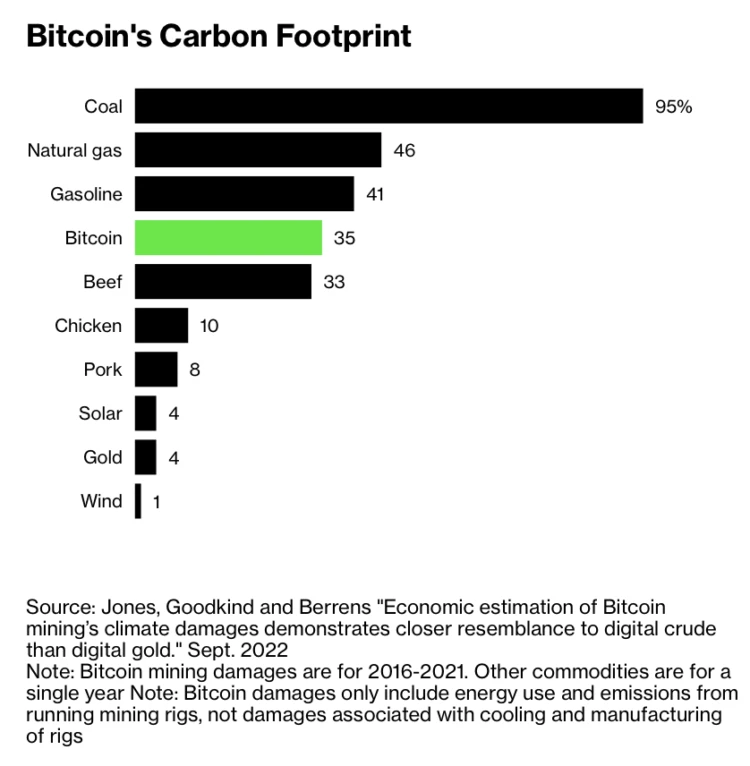In a landmark decision that has rippled through both the cryptocurrency and environmental sectors, Bitcoin miners have secured a temporary victory against the Department of Energy (DOE). A federal judge has put a pause on the DOE’s intentions to investigate the energy consumption of Bitcoin mining operations across the United States, granting a temporary restraining order that halts the collection of data on this front.
This ruling comes amid escalating concerns over the environmental footprint of cryptocurrency mining, particularly Bitcoin, which has the largest carbon footprint within the digital currency landscape. The United States, leading the global chart in Bitcoin mining, finds itself at the heart of a contentious debate on the sustainability of such operations, which are notorious for their hefty energy usage.
The DOE’s initiative, announced last month, aimed to mandate crypto mining companies to disclose their electricity consumption, was met with immediate legal pushback. Industry groups, including the Texas Blockchain Council and Riot Platforms, a prominent Bitcoin mining firm, argued that the DOE’s emergency data collection request was unjustified and legally flawed.

Brian Morgenstern, head of public policy at Riot Platforms, vehemently defended the industry’s stance. “Weaponizing an agency against law-abiding businesses for political reasons must not be permitted,” he stated, marking the legal triumph as a significant moment for the sector.
The heart of the legal challenge was the DOE’s categorization of the survey as an “emergency” action, which was disputed by the plaintiffs. The judge, siding with the Bitcoin miners, noted that the plaintiffs had convincingly demonstrated that complying with the DOE’s request would inflict immediate and irreparable harm on their operations. Consequently, the temporary restraining order was issued, effectively freezing the DOE’s plans to gather data.

This legal scuffle underscores a broader, global concern over the environmental impact of Bitcoin mining. The operation, essentially a round-the-clock digital gold rush, consumes an enormous amount of electricity—comparable to the annual energy use of all home computers in the U.S., as per a 2022 White House Office of Science and Technology Policy estimate. The ecological and social repercussions of Bitcoin’s energy consumption, including its contribution to greenhouse gas emissions, have been criticized for outweighing those of traditional industries like beef production.
Specifically, in Texas, a burgeoning hub for crypto mining, the industry’s energy demands have placed additional pressure on the state’s power grid. During peak periods, such as heatwaves, the grid operator has compensated Riot Platforms over $31 million in energy credits to reduce consumption. Moreover, the resurgence of dormant fossil fuel plants and heightened electricity costs for New York residents highlight the tangible impacts of Bitcoin mining on local communities and the environment.
As the legal proceedings continue, the temporary halt on the DOE’s survey leaves the future of crypto mining regulation in the U.S. uncertain. With the environmental stakes high and the industry’s growth unabated, this legal battle represents a critical juncture in the ongoing discourse on balancing technological advancement with ecological sustainability.
7 Reasons Why This Matters
This legal battle matters because it highlights the tension between technological progress and environmental sustainability. Here’s why it’s significant:
- High Energy Consumption: Bitcoin mining uses vast amounts of electricity. Its energy demand in the U.S. is comparable to the annual electricity usage of all home computers nationwide. This raises concerns about the sustainability of such practices.
- Environmental Impact: The environmental footprint of Bitcoin mining is substantial. It contributes to greenhouse gas emissions, with studies suggesting its impact may exceed that of traditional industries like beef production. This poses challenges to global efforts to combat climate change.
- Stress on Power Grids: In regions like Texas, a hub for crypto mining, the industry’s energy demands can strain power grids. This has led to measures like paying companies to reduce electricity use during peak times, highlighting the direct impact on energy infrastructure and supply.
- Revival of Fossil Fuels: To meet energy demands, some dormant fossil fuel power plants have been brought back online. This move contradicts broader environmental goals aimed at reducing reliance on fossil fuels and promoting renewable energy sources.
- Increased Electricity Costs: In some areas, the operations of Bitcoin mines have led to higher electricity costs for residents. This raises questions about the fairness and distribution of energy costs within communities.
- Legal Precedents: The temporary restraining order against the Department of Energy’s survey request sets a precedent. It could influence how governments regulate and oversee energy-intensive industries, particularly those related to technology and cryptocurrency.
- Broader Sustainability Conversations: This case brings to the forefront the need for a balance between innovation and environmental stewardship. It underscores the importance of regulatory frameworks that ensure technological advancements do not come at the expense of the planet’s health.
In short, this situation proves the importance of a sustainable approach to energy consumption by industries, especially those as energy intensive as cryptocurrency mining. And why we must push for policies and practices that align technological growth with environmental conservation goals.



















